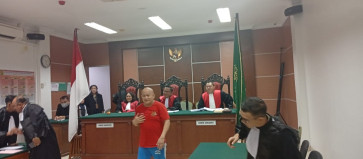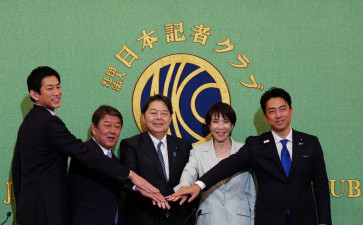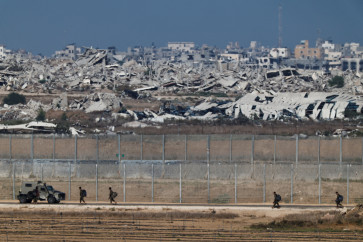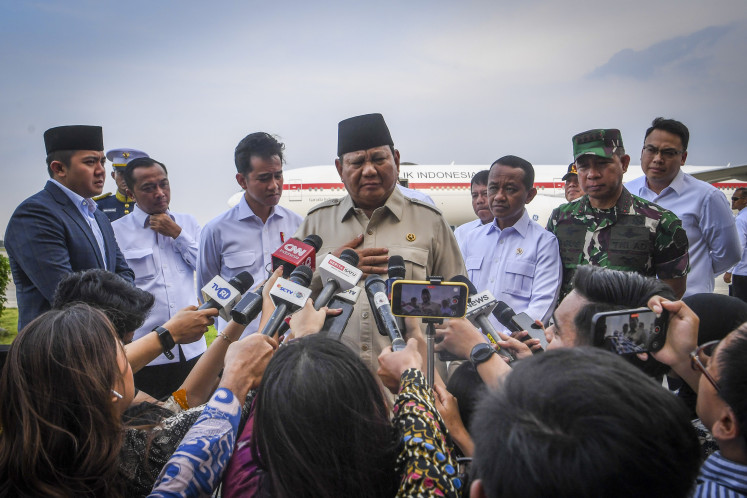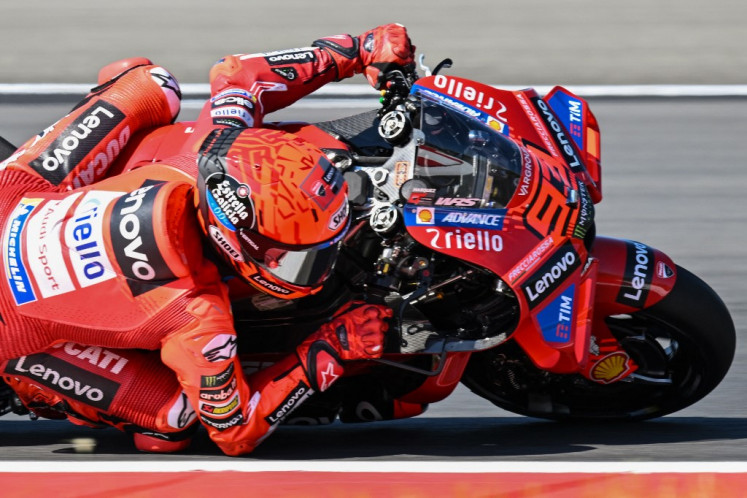Popular Reads
Top Results
Can't find what you're looking for?
View all search resultsPopular Reads
Top Results
Can't find what you're looking for?
View all search resultsIndependent, poverty-less nation
When we commemorate the 68th anniversary of Indonesian independence, let us be honest in assessing as to what extent we have accomplished the goals set forth by the founders of this republic
Change text size
Gift Premium Articles
to Anyone
W
hen we commemorate the 68th anniversary of Indonesian independence, let us be honest in assessing as to what extent we have accomplished the goals set forth by the founders of this republic.
Indeed, we are blessed with abundant natural resources. Our ancestors expressed this as 'gemah ripah loh jinawi tata tentram kerta maharaja' ' a just, wealthy and peaceful community. However, when greedy and extractive institutions gained control over the resources of this nation, things turned to disarray. Consequently, the people of the archipelago have lived under the yoke of injustice, poverty, inequality, fragmentation and dependency.
This exploitation gave rise to resistance, as clearly expressed by the Sukarno: 'We struggle because of our suffering, we struggle because we want to live a decent life. We struggle not only because of 'idealism', we struggle because we want to have adequate food, adequate clothing, adequate land, adequate housing, adequate education and adequate art and culture. In short, we struggle because we want to improve our fate across all walks of life.'
It is thus clear that the growing consciousness regarding the suffering and poverty inflicted by imperialism was what ignited the flames of the national independence movement.
Sukarno affirmed that 'Independence is a 'Golden Bridge', at the other end of which we shall perfect the lives of our people [...] The principle is, no poverty in Independent Indonesia.' In essence, with independence we want to realize a just and prosperous Indonesian community. For this reason, the preamble of the 1945 Constitution clearly states that the purpose of the establishment of the Republic of Indonesia is, among other things, 'to promote general welfare and educate the nation'.
Bung Karno had encapsulated the goals of the nation in guidelines he named Trisakti (The Three Powers): 'political sovereignty, economic independence and national character'. His revolutionary vision had revealed that those noble goals could not be realized without consistently applying the process of menjebol-membangun (constructive destruction) to abolish extractive institutions in various forms inherited from the colonial and feudal systems.
The most fundamental push to implement this entailed the issuance of Law No. 2/1960 on sharecropping agreements, Law No. 5/1960 on basic regulation on agrarian principles (UUPA) and Law No. 56/1960 on the size of agricultural landholdings.
These breakthroughs attempted to confront the structural injustice of the feudalistic colonial systems head-on, both in terms of production relationships and natural resource control in order to realize social justice for all Indonesians.
Now, we have officially been at the other end of the 'Golden Bridge' for 68 years; high time for some soul searching. To borrow from one of Indonesia's greatest poets, Chairil Anwar, we should ask ourselves, 'Have we been faithfully keeping watch on the border between proclamations and dreams? Have we tried to attach meaning to the thousands of bones lying scattered between Karawang and Bekasi?'
Does this mean that we have been deliberately letting our brothers and sisters remain poor, dominated and colonized? No, a host of initiatives and policies have been put in place since the early days of independence. Recently, four clusters of poverty alleviation programs were simultaneously carried out by the government in an attempt to address all facets of poverty: social protection, community empowerment, the empowerment of small- and medium-scale enterprises (SME) and cheap infrastructure programs for the people.
These programs have begun to show some results. In 2007, the number of poor declined to 37.17 million (16.58 percent). Furthermore, the number living in poverty continued to decline to 34.97 million people in 2008, 32.53 million people in 2009 and 31.02 million people (13.33 percent) in 2010.
This means that overall, from 2005 to 2010 about 4 million people managed to escape from poverty. This is a magnificent feat, but one should keep in mind the inordinate amount of funds dedicated to this endeavor.
Had the design and implementation of our poverty alleviation programs been more consistent, we could have garnered much better results, akin to Fome Zero of Brazil. It is also unfortunate that at the implementation level, the coordination among various government institutions both at the central and regional levels proved to be inadequate. As a consequence, complementarity among these programs has been at a minimum. Quite often we encounter cases where beneficiaries did not receive the planned amount.
Thus, despite all our hard work, the number of poor, near-poor and vulnerable remains around 96.4 million ' about 40 percent of our population. Furthermore, a significant portion of our young are stunted, denoting chronic malnutrition.
These people are materially poor, but the rest of us, those who are not materially poor yet seemingly oblivious of the dire plight of our fellow countrymen, must certainly be spiritually poor!
These people are poor in mind, poor in solidarity, poor in imagination, poor in innovation and poor in a sense of togetherness. In short, lacking the very Indonesian essence! It is definitely heartbreaking that this 60 percent includes policymakers, policy executors, conglomerates, law enforcers, religious leaders and educated people. Yes, all of us claim to be Indonesians.
'What went wrong?,' President Susilo Bambang Yudhoyono asked in mid-2012. Going back more than half a century ago, the spirit of solidarity, le desir d'etre ensemble (the willingness to become one), disappeared when efforts to abolish extractive institutions by Sukarno through UUPA were blocked by the plantation overlords and feudal landlords. This is a heartrending revelation that the local elites elected to assume the roles of the imperialists rather than restore the rights of the people.
Because we have been in denial about Sukarno's nation- and character-building ideals, we have yet to be able to truly establish a solid Indonesian character. It comes as no surprise that the nation is fragmented and the colonial dualistic economy has been resurrected ' the extractive greedy evils have re-established their stranglehold on institutions and policies in this country. Lamborghinis glide along majestically while beggars forage for scraps in the garbage cans on the roadside.
Confronted by the widest inequality since independence, driven by untrammeled markets, it is time to go back to basics. Let us empower the capacity and ability of the people so that they will be able to take full advantage of the economic opportunities we expressly create for them. We need to direct funds and forces to small farmers, farm laborers and SMEs while also supporting education and training in every corner of the country.
Technological and institutional innovations and incentives created by affirmative fiscal and monetary policies will definitely shatter the colonial-feudal social structure and give rise to a social structure built on solidarity, in which every citizen will be secure that we are truly on the same boat.
Under the prevailing circumstances, the main challenge the republic has to face is how to drive out the 'desire to subjugate' from the minds of those in power, in government and in businesses, both in the capital and in the regions.
So please step forward, the true sons and daughters of the nation who want to honor the bones scattered between Kerawang and Bekasi. Provide meaning to all those who sacrificed themselves in securing our independence.
The prevalence of poverty attests that this is yet to become an independent Indonesia.
The writer headed the Coordinating Agency for National Poverty Alleviation in 2001.


